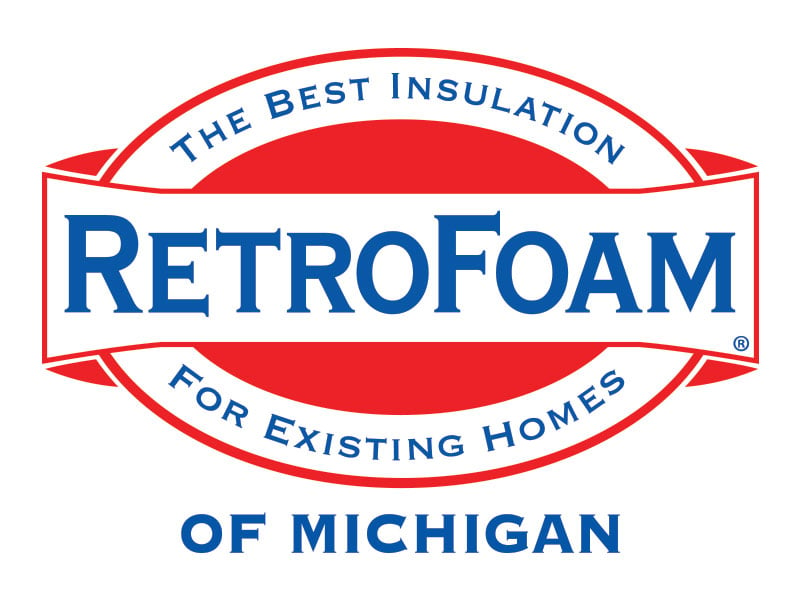Insulation Contractor Vetting Checklist: What You Need to Look For Before Signing the Contract


Are you courting a few potential insulation contractors and need to know how to narrow down your choices?
It’s like speed dating, but you care less about their interests and more about their experience. We understand that figuring out what information you need to make the best decision for your insulation project can be tricky.
RetroFoam of Michigan has gotten some great questions from homeowners going through this vetting process. We’ve included some of those questions here and some that can help you choose the best insulation contractor for your home.
In our continued efforts to educate homeowners, we have listed some great things to inquire about and why they’re so important.
Insulation Contractor Vetting Checklist
You want the best insulation contractor for the job, so here are some questions to ask to make sure that happens.
What Insulation Materials Do They Offer?
A good insulation contractor can tell you every detail about the material they use.
They should also be able to give you information on the other materials that could work for your project and suggest the best fit for your needs.
Are They a Licensed Contractor in Your State?
It's crucial when choosing an insulation contractor to make sure they are not only licensed but licensed in the state where they will be working.
If the contractor is licensed in Ohio but working in Michigan, it could cost the homeowner money. When a contractor applies for a license, they must show proof of insurance, but we'll have more on that in a bit.
Do They Offer Any Kind of Warranty?
A warranty is more important than you think, as it protects you and will cover you if there is a problem in the future.
The warranty usually covers the product and the installation workmanship, but that can vary from contractor to contractor. It comes in handy if areas are missed, the insulation was installed incorrectly, or if any damage is done to the home. It all comes down to what the contractor specifies in the warranty, so make sure you read the fine print.
Do They Carry Liability Insurance and Workers Comp?
These are both important for a potential contractor to have as they protect you, the homeowner.
The liability insurance will protect you if damage is done to your home, as that policy will pay for the damages, and you don't have to file a claim with your homeowners' insurance.
Workers comp also protects you if a member of the contractor's crew is injured on the job at your home.
Check Out Their Reviews and Ask to Speak to Customer References
There is nothing wrong in this case for lurking on someone's social media presence.
Check out the contractor's Google and Yelp reviews. See what previous customers are saying about them online. It also doesn't hurt to ask if they have previous customers who might be willing to talk to you about their experience.
Are They Familiar with the Federal Regulations on Home Insulation?
The Insulation Contractors Association of America suggests your insulation contractor be well versed in federal regulations.
This means the contractor can explain the material's R-Value to you. Remember that R-Value doesn't tell the whole story for a material like foam, but the contractor needs to be able to explain how the air seal it creates is far greater than just the R-Value.
Check Cancellation Policies
Before you commit, understand the contractor's cancellation policies.
Unexpected circumstances can arise, and knowing how to handle them without incurring additional costs is essential. In some instances, if notice is given within a few days, then the deposit paid can be refunded.
Other contractors may keep that deposit even if the homeowner cancels the same day, while others might only keep a percentage of it. It all comes down to each company’s cancellation policy.
Read the Full Contract and Look at the Charges, Material Used, and Scope of Work
Before you rush into signing the contract, it is highly advisable to take your time and meticulously go through every detail.
Pay close attention to the charges, materials to be used, as well as the comprehensive scope of work, ensuring that they are clearly outlined in the contract. By doing so, you can effectively prevent any potential misunderstandings that may arise in the future. It's better to be thorough now than to face any unnecessary complications later on.
Read the Fine Print - What the Company Isn't Liable For, When the Balance is Due, and How Long the Pricing is Good For
When reviewing the fine print, it is important to pay close attention to the crucial information embedded within it.
Be sure to take note of what the company explicitly states they are not liable for, as well as the specified due date for the balance payment.
Additionally, it is critical to be aware of the duration for which the quoted pricing remains valid, as these specific details have the potential to significantly impact both your project and budgetary considerations.
By carefully considering these finer points, you can ensure a smoother and more successful outcome for your endeavor.
Hiring the Best Insulation Contractor for Your Home
RetroFoam of Michigan offers a lifetime warranty, and we're licensed, insured, experienced, and have a vast knowledge of building science and insulation code. Those are the qualities you want in the insulation contractor you decide to hire.
If you have more questions about buying home insulation, check out our article Home Insulation: Everything Homeowners Need to Know.
Related Articles
What is an Insulation Contractor?
Hiring an Insulation Contractor Problems: 6 Tips to Avoid Disaster
What's Inside Your Foam Insulation Contractor's Rig? Here's Why the Equipment Matters
About Amanda Emery
Amanda previously has worked as a breaking news and crime reporter, TV news producer, and editor in Flint and Detroit. Throughout her career as a journalist, she has won several awards from The Society of Professional Journalists - Detroit Chapter and the Michigan Press Association. As part of the RetroFoam of Michigan family, Amanda uses her experience as a journalist to write content that will help educate homeowners on the benefits of foam insulation. When Amanda isn’t writing, she’s spending time with her husband and rescued huskies. She also loves knitting, making art, cooking, and hosting dinner and a movie night for friends and family.



